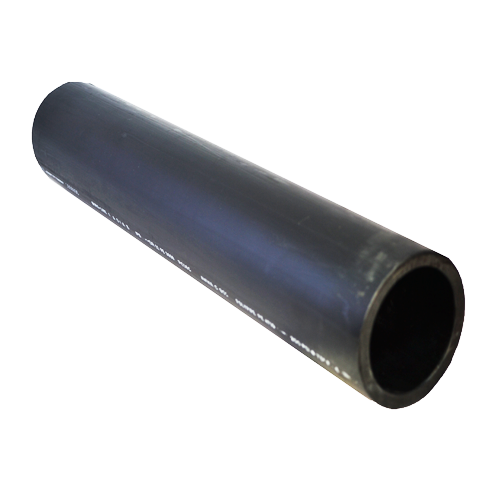Understanding the Key Conveniences of HDPE Pipeline for Water and Wastewater Management
Making use of HDPE pipeline in water and wastewater management provides various advantages that warrant consideration. Its phenomenal longevity and lengthy life-span make it a preferred option for several projects. In addition, the product's resistance to deterioration and chemical damages enhances its reliability in various atmospheres. The advantages extend past just durability and resistance. American Plastics HDPE Pipe for Oilfield. Discovering its cost-effectiveness and ecological influence reveals much more engaging factors for its widespread fostering in modern-day facilities
Extraordinary Resilience and Durability

HDPE pipeline stands out for its outstanding resilience and long life, making it a recommended choice in water administration systems. Constructed from high-density polyethylene, these pipes can hold up against substantial stress and stress and anxiety, making certain trustworthy efficiency over time. Their durable nature enables them to sustain severe environmental conditions, consisting of temperature variations and dirt movements, which can create other materials to stop working.
The lifespan of HDPE pipelines commonly surpasses half a century, providing an economical service for municipalities and sectors alike. Furthermore, the product's light-weight residential properties simplify setup, reducing labor expenses and timeframes. This resilience reduces the requirement for frequent fixings or substitutes, even more boosting its economic allure.
In water management applications, the integrity of HDPE pipes implies fewer interruptions and improved service connection, making them indispensable to lasting framework growth. The mix of toughness and durability solidifies HDPE's role as a cornerstone in reliable water monitoring options.

Resistance to Rust and Chemical Damages
While lots of materials catch rust and chemical damage with time, HDPE pipes show remarkable resistance, making them excellent for different water administration applications. This strength stems from the molecular structure of high-density polyethylene, which is inherently non-reactive and does not wear away like steels or weaken from direct exposure to rough chemicals. As an outcome, HDPE is highly reliable in settings with aggressive compounds, such as wastewater systems that might have acids, bases, and organic solvents.
In addition, HDPE pipes can endure environmental variables such as dirt level of acidity and saline problems, additionally boosting their viability for varied applications (Midland TX HDPE Pipe Fittings in Stock). Their capability to maintain structural stability in time lowers the risk of leaks and failings, which is critical in making sure the safety and integrity of water circulation and wastewater administration systems. The resistance to rust and chemical damage considerably contributes to the total performance and durability of HDPE piping services.
Cost-Effectiveness and Financial Advantages
When taking into consideration the monetary implications of water management systems, the cost-effectiveness of HDPE pipes becomes evident. These pipes provide lower installment and maintenance costs contrasted to conventional products like metal or concrete. Their lightweight nature streamlines transportation and setup, resulting in reduced labor costs. In addition, HDPE pipes display a lengthy lifespan, frequently exceeding half a century, which equates to fewer replacements and long-term cost savings.
In addition, the resistance of HDPE to corrosion and chemical damages decreases the requirement for expensive repair work and substitutes. The pipes also sustain efficient water circulation, decreasing energy prices connected with pumping systems. By mitigating leakages and water loss, HDPE pipes add to substantial economic advantages for districts and markets alike. In general, the initial financial investment in HDPE piping can generate considerable economic returns over the life-span of the water administration system, making it a sensible option for sustainable facilities development.
Ecological Sustainability and Lowered Impact

Versatility and Flexibility in Installation
Due to the fact that of their special residential or commercial properties, HDPE pipelines provide amazing adaptability and versatility in setup, making them appropriate for a vast array of applications. Their light-weight nature enables less complicated handling and transportation, lowering labor prices and setup time. HDPE pipelines can be bent and shaped to fit different surfaces and task needs, which is specifically beneficial in testing atmospheres.
Furthermore, their resistance to rust and chemical damages permits setup in diverse setups without the need for specialized safety layers. The capacity to fuse joints produces a continuous, leak-free system, enhancing the general integrity and reliability of the installation. HDPE's adaptability likewise accommodates ground movement, reducing the risk of damage in areas prone to shifting dirt. Generally, these features make HDPE pipelines not just flexible yet additionally a recommended option for water and wastewater monitoring systems.
Often Asked Questions
How Does HDPE Pipeline Compare to PVC in Water Monitoring Applications?
HDPE pipe offers exceptional adaptability, resistance to corrosion, and toughness contrasted to PVC. Its lighter weight promotes simpler setup, while its lengthy adjustable pipe clamp life-span minimizes replacement expenses, making see page HDPE a recommended selection in water administration applications.
What Is the Lifespan of HDPE Pipes Under Normal Conditions?
Under regular problems, HDPE pipelines can have a lifespan ranging from 50 to 100 years. Their sturdiness and resistance to corrosion add to their long-term performance in numerous applications, making them a trustworthy option for framework.
Are HDPE Pipes Recyclable After Their Life Span?
Yes, HDPE pipelines are recyclable after their life span. Pipe Supplier American Plastics Midland. They can be processed and repurposed into new products, considerably reducing ecological effect and advertising sustainability within the sector, making them an environment-friendly choice for piping services
What Is the Setup Process for HDPE Water Lines?
The installation process for HDPE pipes entails site prep work, trenching, pipeline combination or mechanical joining, backfilling, and pressure testing. Correct strategies guarantee a durable and effective system for carrying water and wastewater efficiently.
Can HDPE Pipeline Be Used for Both Drinkable and Non-Potable Water Solutions?
Yes, HDPE pipes can be made use of for both potable and non-potable water systems. Their flexibility, sturdiness, and resistance to rust make them ideal for different applications, ensuring secure and efficient transportation of water in different contexts.